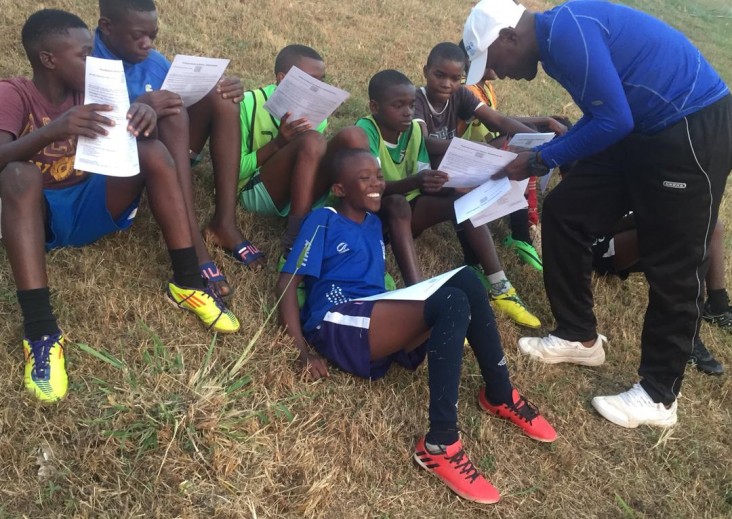Speeches Shim

Minister of Health Dr. Chitalu Chilufya
P.S. Technical Services Kennedy Malama
Stop GBV Chief of Party Johans Mtonga
Ladies and gentlemen
All protocols observed
Good morning. On behalf of the U.S. government, I am honored to join you today to celebrate the launch of four new One-Stop Centers and the addition of critical gender-based violence (GBV) indicators to the national Health Management Information System (HMIS). These improvements increase access to vital post-GBV care and improve data collection and response to GBV cases.
On November 25, we joined the Zambian government to commemorate the International Day for the Elimination of Violence Against Women and kick off the 16 Days of Activism Against Gender-Based Violence. Of the many events and commemorations that the U.S. government participates in each year, advocating for a safer, more just, and more equal world for women is among the most important.
Violence against girls and women continues to be one of the most widespread, persistent human rights violations in our world today. Whether it is intimate-partner violence, sexual violence, harassment, trafficking, or child marriage, gender-based violence impacts the affected individual’s life in a myriad of ways and can limit them from reaching their full potential. The physical and psychological impacts of gender-based violence are devastating. They lead to poor educational and economic outcomes, drive new HIV infections, and perpetuate the cycle of poverty, hindering the economic and social progress of a country.
These One-Stop Centers and the work we do with the Zambian government helps to break the cycle for women. This was the case for Mary, one of the women that our STOP GBV program helped. Mary endured her husband’s physical, sexual, and emotional abuse for many years without seeking help. One day, after her husband physically beat her, she fled to relatives in Chongwe. A GBV community activist urged Mary to visit the Chongwe One-Stop Center. At the Center, Mary received care for her physical wounds as well as psychosocial counseling. The Police Victim Support Unit launched an investigation, and her husband was arrested. Mary’s story is unfortunately all too common. She is one of the hundreds of thousands of Zambian women who have suffered emotionally and physically at the hands of a partner or spouse. This cycle of violence must stop.
Since 2005, through the U.S. Agency for International Development and the US President’s Emergency Plan for AIDS Relief, or PEPFAR, the American people have partnered with Zambia to increase support for gender equality, strengthen GBV-response services, and support the laws and policies that ensure protection for survivors and justice for perpetrators.
Together with the Zambian government, we have established 26 fully operational One-Stop Centers for comprehensive GBV response and care. We have trained magistrates, police officers, and doctors to improve access to justice for child survivors. We have challenged GBV norms through the widespread implementation of evidence-based programs, and together, we have trained close to 100 chiefs and 340 headmen, induna, and traditional leaders to identify and respond to GBV in their own communities.
Today, we are proud to join the Zambian government to establish four new One-Stop Centers in Kitwe, Mufilira, Solwezi, and Sesheke, bringing the total to thirty centers across the country. These centers are a critical resource for survivors of GBV, providing them with a package of support services in a safe and confidential setting. These services include psychosocial support, HIV testing and linkage to treatment, post-exposure prophylaxis, legal services, and linkage to the criminal justice program.
In addition to launching four One-Stop Centers, we are also here to commend the Ministry of Health for adding GBV indicators to the national health reporting system, which will provide critical data for planning and policy development as well as programmatic targeting and decision making.
In the coming year, the United States will intensify efforts to prevent and respond to GBV throughout the country. Through PEPFAR support of DREAMS and Faith and Communities Initiatives, and under our new Empowered Youth program, we will expand the implementation of evidence-based programming to prevent sexual violence against children. Programs will include “Coaching Boys into Men,” which trains athletic coaches to teach young male athletes about healthy relationships, and IMPower, which teaches girls the verbal and physical skills needed to prevent sexual assault.
It is an honor to join you on this very important day. As always, we stand with the Zambian government to combat the scourge of gender-based violence. The services provided at these centers will bring supply needed support to women like Mary, who is now able to live a healthy life, free of violence and fear. The road ahead is long, but it is encouraging that progress is being made to address the serious issues of gender-based violence in Zambia.
READ MORE
Related Speeches
- Chief Advisor to the Administrator Jennifer Arangio’s Remarks on W-GDP Advancing Women’s Leadership in Energy Program
- Deputy Administrator Glick’s Remarks at the Employment Accountability Community of Practice Launch
- Acting Administrator John Barsa’s Remarks at W-GDP Roundtable and Announcement in Kenya

Comment
Make a general inquiry or suggest an improvement.